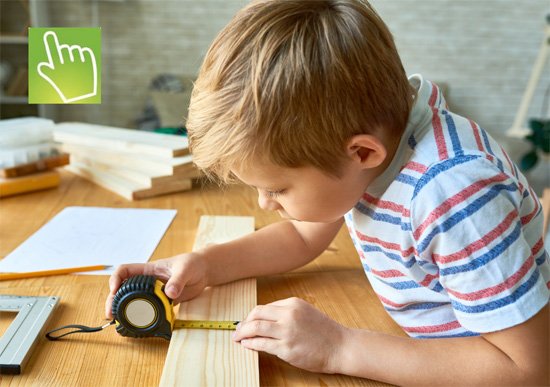
The Importance of Kindergarten
Every year, in the United States the 21st of April is the official celebration date of National Kindergarten Day.
Why April 21 you ask? Well, it is the birthday of the German educator Friedrich Fröbel, who founded the first play and activity institute called kindergarten in 1837. (Kindergarten’s actually a mid-19th century German word literally meaning “children’s garden.”)
According to Fröbel, young children should follow their own interests and freely explore them. That’s why kindergartens include singing, dancing, and creative play.
Why is Kindergarten Important For A Child’s Development?
Kindergarten is important to students’ success and helps children adjust to elementary school, as well as their success in later years.
Kindergarten learning also lays the groundwork for learning in later grades.
According to developmental psychologist John W. Santrock, children experience rapid growth of their frontal lobes between the ages of three and six. This is the area of the brain that regulates organization, planning, and maintaining attention.
Researchers believe that kindergarten teaches skills like patience and perseverance and that learning these skills early contributes to later success as an adult.
Kindergarten goes a long way in the overall development of your child. It develops your child’s social, emotional, literacy, and fine motor skills, which they need to build during their lifetime. During this period, children learn by engaging their senses of hearing, sight, smell, and touch.
What Age Should Kids Start Kindergarten?
Historically, the starting age for kindergarten has varied widely. In the past five years, both states and districts have pushed the minimum age to start kindergarten up so that more and more kids are at least 5 years old when they start school. In California, a child shall be admitted to a kindergarten maintained by the school district at the beginning of a school year, or at a later time in the same year if the child will have his or her fifth birthday on or before September 1st. By law, all children must be in compulsory schooling by their 6th birthday. (Please check your state’s requirements for age and cut-off dates.)
Kindergarten Introduces Your Child To New Ideas, Helps Develop Problem-Solving Skills,
Along With The Following Skills:
- Learn to coordinate and cooperate with fellow students

- Become more aware of his surroundings
- Respect for others and start understanding others feelings
- Develop language skills, numeracy, and reading stories
- Making friends
- Receptible to new concepts and ideas
- Build confidence
- Improve communication skills
- Express their creativity through art, drawings, and dance
- Develop academic skills like reading, writing, and counting
Furthermore, survey results show children who attend kindergarten classes tend to have better cognitive skills, higher IQ, better understanding, improved social interactions, and develop a deeper love for learning.
How To Choose The Right Kindergarten Program For Your Child?
Choosing the right kindergarten school will enrich your child’s learning experience. An excellent kindergarten program would offer your student a variety of learning experiences that are fun and learning-oriented at the same time.
An article in Psychology Today reported that a good teacher and the quality of early education make a huge difference. They conclude that early education is a very good investment.
 10 Tips for Choosing a Kinder Program?
10 Tips for Choosing a Kinder Program?
- Half-Day or Full Day
- Are you interested in Public, Private, Private Homeschool, Small Learning Pod?
- What has been your response to Covid-19? What policies/protections do you have in place? How do you keep kids safe from infectious diseases?
- Do the school’s educational philosophy and values match your family’s?
- What background checks do you run on prospective employees?
- School proximity
- School transportation, e.g. bus schedule
- Special interests like language, arts, and alternative programs
- School curriculum structure.
- Talk to other parents in the community. Does the school have a good reputation?

 10 Tips for Choosing a Kinder Program?
10 Tips for Choosing a Kinder Program?